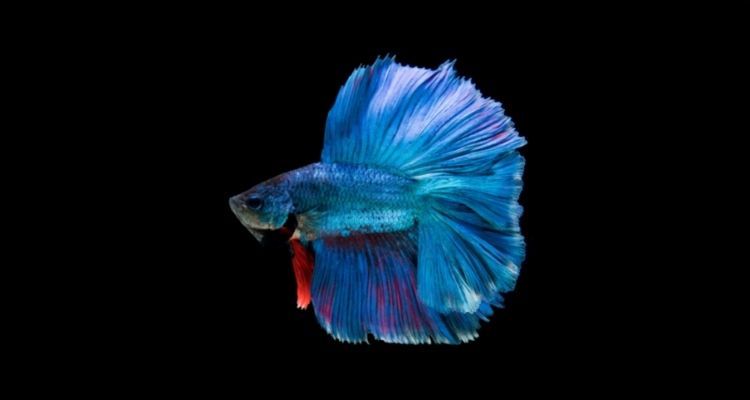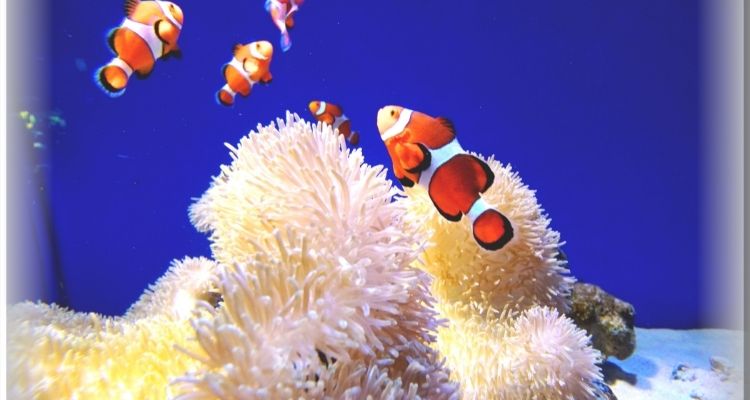
Every aquarist can attest to this; fish love begging for food. Whether you have fed them three days or 2 minutes ago is of no consequence. They will rush towards you whenever you pass by the aquarium and will eat everything you chuck out for them.
Are they always hungry or just greedy? Why do they behave this way?
Fish swimming towards you when you pass by doesn’t always mean they are hungry. It is something they have learned as they associate your presence with getting food. This means that every time they see you pass by is like a mealtime bell for them.
In their natural habitat, competition for feed is so high and severe. The competition has cultured a survival instinct of food stocking. Fish can stock food in their mouth for future use given the opportunity. With no knowledge of where or when the next meal will come, they eat to survive.
This instinct is not forgotten in fish tanks. Searching and stocking food and stocking food is how they live.
While this is fine in their natural environment, the trouble is it is catastrophic in their artificial ones. Have you ever wondered why one of the most famous pieces of advice aquarists give is not to overfeed fish?
No, Why is that?
Overfeeding your fish is detrimental to their health. No, I am not talking about the risk of obesity or related issues of overfeeding.
I mean, it is a certain death warrant due to nitrogen-based toxins.
Overfeeding your fish will lead to excessive excretion due to heightened metabolism. Waste materials and excessive food at the bottom of your tank will decay to release ammonia. A spike in ammonia levels will be inevitable since the beneficial bacteria (that break down ammonia) will have more than they can.
Ammonia will thus irritate the fish, cause damage to organs like gills, loss of balance, and convulsions; eventually, death will follow.
Overfeeding is a common rookie mistake that happens with almost every beginner aquarist. If it has happened, learn from the experience and trudge on. If not, you now have the knowledge that you can save your first batch of fish; please do!
Sometimes, experienced fishkeepers lose their fish due to fish sitters. They will invite their neighbors t look after their aquariums only to have them overfed and possibly die.
Pro tip: Make sure the person you leave your fish in their care has ample knowledge of aquariums.
Hungry or Full: How do I know?
We now know that fish can act hungry even when they are not. So, how do you notice hunger or overfeeding in fish?
Yes, it is possible to know when your fish are hungry are full. For clarity, I will highlight these aspects individually.

Hunger, huh?
According to my experience and research, few signs may indicate hunger in fish.
A fish may act according to the signs below but may not necessarily mean that they are hungry. It is only through your constant observations and familiarity with your pet that you may see the signs and know with utmost certainty of their condition.
With that said, here are the signs:
-
Aggressiveness
It is relatively common in aquariums with a lot of fish. They will aggressively compete for food even when there is more than enough for them.
However, if you notice this where there was no full-on aggression before, it is probably because your fish are underfed. In some cases, an increase in aggression, even where aggression was expected, is also a sign of underfeeding.
It should tell you that it is probably time for you to re-evaluate your feeding program.
-
Scavenging
It is characterized by burrowing substrate materials or even visiting areas in the aquarium that are not often visited.
You will observe them looking around rock crevices. Well-fed fish are not always as busy as those that are hungry.
-
Size of the fish
Many aquarists can describe minute details of the fish they keep. If you can’t tell the mundane features of your fish yet, don’t worry, it comes with time.
Fish familiarity is a convenient skill that is easily applicable in this context. Change of size in fish can further cement your conclusions. You will notice fish that had bulging abdomens shrink in size. Their growth might be stunted or size too small for their age.
-
Sluggishness
In the worst-case scenario, fish will tend to have reduced physical activities to conserve their energy. They will slack off or move relatively slowly when they swim around.
Sluggishness comes as a result of staying a long period without eating. Typically, a fish can survive 7 to 10 days without feeding on anything. Hence, slacking or inactivity can be attributed to other factors such as illness.
Do not fret. Try feeding your fish and seek professional advice if it persists.
The above signs will work best if you use them simultaneously. Positive observations on more than one are better than one negative observation.
Overfed Fish
Fish will eat even when they are full; we know that. The thing is, they are full when they stop eating, and it can be after they have overfed. You should determine the amount of food they need and strictly adhere to your scheduled program. (Feeding them once a day is more than enough to keep them healthy. Though, you should also be keen not to overfeed in the scheduled mealtime.)

Overfeeding is slightly easier to notice as the signs are clear and abundant. Symptoms of overfeeding in fish include:
-
Instability of the aquarium ecosystem
Overfeeding leads to increased levels of nitrogenous toxins in the water. Concentrations of these toxins will make your fish sick or cause death.
Aquarists test the water to track and keep the level of this toxin controlled. A spike in toxins can be observed if you overfeed your fish. It would be best if you established the balance that was there before.
-
Bacterial bloom
More fish food means more food for beneficial bacteria. They will start increasing in populations causing the water to appear cloudy.
Cloudy water after you have cycled a tank can be an indication of too much food going on.
When observed, it should prompt one to reduce the amount of food given to the fish.
-
Leftover food
Have you seen flakes of fish food floating on water? Or leftover food on the substrate of your aquarium?
If the answer is yes, you are most definitely overfeeding your fish.
-
The abnormal increase in the size of fish
If your fish has an abnormal increase in size, you are probably overfeeding it. You can monitor the abdominal size to gauge when to add more and when not to.
Conclusion
It’s important to remember that sometimes, fish are not hungry. They may be driven by instincts to eat more to store food when there is scarcity.
It is best to feed them just enough to thrive in our aquariums – which means we have to learn to look the other way when they swim towards you for more food. Ah! Those little adorable creatures…